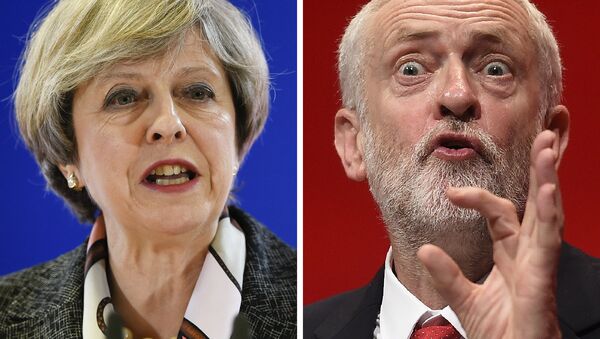The Liberal Democrats, the Greens and the Independents have made substantial gains, getting hundreds of council seats. The Conservatives' 2010 coalition government partners — the centrist, pro-EU Liberal Democrats — have picked up more than 300 hundred seats.
"The old politics of Labour and the Tories simply isn't good enough. The Lib Dems are the real alternative, demanding better for Britain from local government up to our national issues," the Lib Dems said in a statement on Friday.
On way to Chelmsford to celebrate best @libdems local election results in at least 15 years. In big cities and rural England — in both Leave and Remain areas — we have shown ourselves the strongest campaigning force and the big winners of the night. Three party politics is back.
— Vince Cable (@vincecable) May 3, 2019
Another grateful recipient was the Green party, who seek to "opening up politics to those outside the Westminster Establishment." The Greens have won more than 40 seats across England — an outcome that the former leader Caroline Lucas called "a brilliant launchpad for European elections in 3 weeks."
A record breaking morning for the Greens — not just in terms of council seats won, but new members joining. Join the #GreenWave today 🥳https://t.co/OlwL9RZ3z7 pic.twitter.com/knTrMzmvPv
— The Green Party (@TheGreenParty) May 3, 2019
This has been an amazing night for @TheGreenParty — we've now broken through onto 26 new councils!
— Caroline Lucas (@CarolineLucas) May 3, 2019
And brilliant launchpad for European elections in 3 weeks under a PR system where message of bold action on #ClimateEmergency & Remain in EU is getting even more support #GreenWave
Societal division and frustration over unsuccessful Brexit negotiations led by the Conservatives and the inability of the main opposition party to effectively influence the outcome of the talks were seen as key reasons for the downfall of the big players in the local elections.
Independent candidates have been on the march, picking up more than 220 seats as a result of the vote. The pro-EU Change UK — the Independent Group, formed in February 2019, celebrated their gains, slamming Brexit failures of the mainstream politicians and hailing the voters for supporting "parties backing a #PeoplesVote and independents."
Voters have said v clearly — they do not support the Brexit approach of the two main parties. Instead they supported parties backing a #PeoplesVote and independents. It's time to fix our #BrokenPolitics and time for @TheIndGroup #localelections19
— Heidi Allen MP (@heidiallen75) May 3, 2019
The #LocalElections results in so far show a significant rejection of the two main parties, in favour of Pro Remain/#PeoplesVote alternatives.
— Luciana Berger (@lucianaberger) May 3, 2019
It's time to #ChangePolitics @TheIndGroup pic.twitter.com/DQxW6lDIvn
Brexit is impossible to deliver as promised. Given we couldn't stand we urged people to vote for parties that unequivocally support — like us — a #PeoplesVote and #Remain. Those parties have gained councillors across the country with lots of independents being elected too. /2
— Chuka Umunna (@ChukaUmunna) May 3, 2019
The sore losers of the local elections, both Conservative and Labour parties, have lost more than 433 and 85 seats respectively.
"We'll see what final results of local elections look like by end of day as they are pretty mixed geographically up to now but so far message from local elections- 'Brexit — sort it.' Message received," said the Labour Shadow Chancellor John McDonnell MP.
The First Minister of Scotland, Nicola Sturgeon, said that "if message Labour takes from English local elections is that they should now be the facilitator of a Tory Brexit, I suspect their troubles will just be beginning."
The ruling Tory party still holds the biggest number of seats, despite dealing a major blow following 2 May vote.
The Scottish Tories have got themselves in a corner. They are now a Brexit supporting party in an overwhelmingly Remain country, which already narrows appeal. But they also can't even claim to have delivered Brexit. Not much principle or strategic nous on display. https://t.co/OHMU3yj9jA
— Nicola Sturgeon (@NicolaSturgeon) May 3, 2019
Citizens of England and Northern Ireland went to polls on Thursday to choose members of 248 out of 353 English local councils, six directly elected English mayors and members of all the 11 local councils in Northern Ireland.




